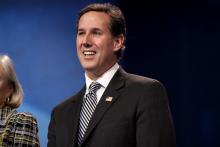Marriage

THE WOMEN IN Talking Taboo: American Christian Women Get Frank About Faith aren’t just frank. They are courageous, clever, and wildly passionate.
This anthology, edited by Erin S. Lane and Enuma C. Okoro, asks 40 women under 40 to respond to the question, “What taboos remain in the church at the intersection of faith and gender?” The result is a collection of stories by women of faith (Baptist, Presbyterian, Mennonite, Catholic, Unitarian Universalist, and more) in a variety of roles (pastor, mother, writer, teacher, student, and more).
The women share times they have felt shamed, alienated, discouraged, or alone as women seeking a home in the church. From addressing domestic violence to lust to pregnancy to the role of a woman pastor’s body, the stories are raw in the way first-person narrative calls upon honesty and vulnerability to trump perfect prose or style.
Anthologies often stick to one structural extreme: Either they are rigid and theme-driven, or loose and nomadic. Talking Taboo follows the latter. Lane’s introduction promises no arc of narrative, no solid take-away message. The stories are here, she writes, because women are agreeing to “speak for ourselves.”

Today’s coffee culture has an incredibly sophisticated vocabulary. Do you want a cappuccino, an espresso, a skinny latte or maybe an iced caramel macchiato? The ancient Greeks were just as sophisticated in the way they talked about love, recognizing six different varieties. They would have been shocked by our crudeness in using a single word both to whisper “l love you” over a candlelit meal and to casually sign an email “lots of love.”
So what were the six loves known to the Greeks? And how can they inspire us to move beyond our current addiction to romantic love, which has 94 percent of young people hoping — but often failing — to find a unique soul mate who can satisfy all their loving needs?
I CAN’T WRITE a completely unbiased, academic review of this book: Nora Gallagher is a friend, and I know the medical world that she must still navigate, and how wonderful it is when you arrive at the Mayo Clinic. This book is for anyone who plans to die one day and wants to live daily with purpose and with a real God. Those who are or have been physically ill will find a kindred soul in Gallagher, while the healthy will wonder how they will handle the sad, sympathetic gazes from others in the pew when their names are placed on the prayer list.
When she is 60, the vision in one of Gallagher’s eyes begins to fail. She limits the use of her one good eye for fear of losing sight in it too. Not so bad, you might think—except that as a writer, seeing is key to paying for the medical tests and travel she will endure for two years.
Of course all good patients become writers in a way. At first you take random notes in scattered notepads. Finally you redefine yourself as a full-time patient whose life demands documentation of every symptom and test in a little black book that becomes your constant companion. You have now entered what Gallagher calls Oz, the land of illness.
For Gallagher, Oz is strange. Oz is blurry. She is lonely. She is a patient not a person. Oz has many disrespectful, condescending doctors working in machine-like hospital systems that allow 10 minutes for a consult; they must get to the next patient, not solve the mystery of her now-painful, debilitating state.

JULIE OWENS had no way of knowing that, within days of saying her marriage vows, she would become a victim of domestic violence. She grew up in a Christian home. Her father was a pastor. Her brother was a pastor. Her uncles were pastors. Her parents had a beautiful and enduring marriage. She was well educated. She was well traveled. And she was deeply in love.
During her honeymoon, Julie quickly realized that her husband now believed he owned her, a belief that would soon be followed by verbal abuse and, toward the end of their marriage, physical abuse.
The abuse began with an irrational jealousy. Then the name-calling began, along with accusations of infidelity. He isolated her from her friends and family. He showed up at the school where she worked as a special education teacher to “check on her.” Later, he started taking the car keys away from her. He even cut the spark-plug wires in their car so that he would always know her whereabouts. He threw dishes at her, disconnected the phone in their rural home, and threatened to harm her, their pets, friends, and even their unborn baby.
Three months into the marriage, Julie knew that his behavior was not normal and the couple separated.
Over the course of the next three months, she went to marriage counseling while her husband went to substance-abuse counseling. In search of help, she spoke with counselors, pastors, and others—yet not one of them ever uttered the words “domestic violence.” Instead, she was told that her husband was dealing negatively with “stress” and that he was “acting out” because he was raised in an abusive family.

While the first months of Pope Francis’ pontificate have been marked by his attention to the poor and his “Who am I to judge” attitude on homosexuality, his pledge to tackle the ban on Communion for divorced and remarried Catholics could have the biggest impact for Catholics in the pews, especially in the U.S.
The current policy has caused what some call a “silent schism,” and bishops around the world concede that the ban has alienated untold numbers of Catholics and their families.
“I think this is the moment for mercy,” Francis told reporters when asked about remarried Catholics during a wide-ranging news conference on the plane back to Rome from Brazil in July.
Like the gay issue, Francis seems to favor a more pastoral approach to the equally perplexing question of “invalid” marriages — couples who remarry outside the church without getting an annulment, or those who do not get married in church in the first place.

AshleyMadison.com is an online dating site that boasts millions of users worldwide. While online dating has become commonplace in today’s wired society, AshleyMadison has added a shocking twist to what has become mundane. Rather than promising to join together singles of similar faiths and interests, AshleyMadison.com is an online site for married people seeking extramarital relations. Its tagline is simple: “Life is Short. Have an Affair.”
The majority of Americans view adultery as wrong, which, by extrapolation, means that most Americans can see the glaring immorality in AshleyMadison’s business model. There are, however, many more reasons beside adultery to be concerned with AshleyMadison’s creation and far-reaching success.
The founder and CEO of AshleyMadison.com, Noel Biderman, has been “happily married” for ten years to his wife, Amanda, and they have two children. Both he and his wife confess they would be “devastated” if the other used the website’s services. When asked how she felt when Biderman first presented his idea for the website to her, Amanda recalled feeling concerned, thinking the idea implied something unhealthy about Biderman. However, once Amanda realized that it was a “sound business, that there was an [underserved] market,” she was “totally behind” the website’s creation.
The Bidermans actually see the website as altruistic: they believe that an affair can save a marriage.

When Dordt College graduates Jordan Harmelink and Rachel Tennant said “I do” at their July wedding, they joined the masses of graduates who meet their spouse at private Christian colleges.
According to an analysis by Facebook, of the top 25 colleges where men are most likely to meet their spouse, all are private Christian institutions. For women, more than half (64 percent) of the top 25 colleges where they’re likely to find a husband are religious schools.
The 12 schools that appear on both lists: They’re all Christian colleges.

After keeping quiet while Maine, Maryland, Minnesota, and others approved gay marriage, Mormon leaders are once again speaking up — but with a new, post-Proposition 8 tone and emphasis.
This time, it’s in Hawaii, which is poised to debate proposed legislation making same-sex marriage legal.
In a letter dated Sept. 15 and read to congregations across the state, Hawaii Mormon leaders urged members of the Church of Jesus Christ of Latter-day Saints to “study this legislation prayerfully and then as private citizens contact your elected representatives in the Hawaii Legislature to express your views about the legislation.”

After we had shared worship together, I recently had a short conversation with a soldier who had just become more directly aware of Jesus Christ’s call to “love our enemies.” His fervent answer to me as we discussed what we had just heard: “No problem; I can easily love a man while I am killing him!” We did not have time for more words together. I would have liked to ask him about his meaning of love.

Excommunicated Zambian Archbishop Emmanuel Milingo, who advocates for married priests within the Roman Catholic Church, said he has not split from Rome though many of the priests he ordained no longer see themselves as part of the church.
“We are not a breakaway church,” said Milingo, who married Maria Sung, a Korean acupunturist, in 2001. “Within the Catholic Church married priests existed for a thousand years.”

THIS SUMMER, two Supreme Court outcomes dramatically affected the reality of the words “Equal Justice Under Law.” In the first, a key component of the historic Voting Rights Act of 1965 was struck down, jeopardizing equal justice under the law especially for black, Latino, and low-income people whose voting rights have historically been assaulted and have continued to be suppressed as recently as the 2012 election. Efforts to increase barriers to voting for people of color, especially those with lower incomes, are already underway in several states. The Supreme Court’s decision was morally shameful.
The decision revealed how politically partisan this bench has become. The conservative justices have aligned themselves with the extreme right-wing politics that has taken over today’s Republican Party—one that has deliberately encouraged and practiced voter suppression against minorities, low-income people, the young, and the elderly.
America has made great progress on racial justice because of the tireless and courageous efforts of many. But the illusory idea of a “post-racial” America is exposed as a lie by this nation’s criminal justice system, the many recent attempts at racially based voter suppression, and now this decision by the Supreme Court.
Through the removal of financial restrictions tacked onto certain marriage policies, President Barack Obama brings hope to low-income couples by acknowledging the financial and moral benefits marriage can have on America's society. Politico reports:
Most benefits for low-income families phase out as income rises. Taken separately, these reductions are understandable and reasonable. But combined, they effectively act as high tax rates — reducing take-home pay for low-income workers — and create a disincentive to work harder. Low-income families can thus find themselves in a situation where receiving a raise or promotion results in losing more in benefits than they receive in additional earnings.
Read more here.

It’s not the message you might expect to hear from Rick Santorum, the Christian-conservative former presidential candidate: Faith-based films tend to be lousy, and Christians should quit trying to lock modern popular culture out of their lives.
Instead, Santorum says, Christian conservatives should acknowledge that modern popular culture is here to stay, and use that platform to produce Christian-themed films that will also have quality and popular appeal. It’s a strategy he says he intends to pursue in his new role as CEO of a ground-breaking faith-based film studio.
In an interview here, Santorum also stood by his strong views against same-sex marriage, citing the necessity to adhere to religious teachings — but then disputed his own religion’s leaders on the issue of immigration.

As I officiate at a family wedding in this charming coastal city, it seems to me the institution of marriage is alive and well — and in serious trouble.
The trouble isn’t out-in-the-open homosexuality, birth control, abortion, assertive women, or any of the right-wing alarms.
The trouble is poverty. The less affluent you are, the more likely you are to have a child without the benefit of a partner, at an age too young for effective parenting, and in chaotic living arrangements.

After traveling the country this spring — while keeping an eye on Washington, D.C. — I am more convinced than ever that our personal decisions, choices, and commitments will change the world more than our politics. The message in the Epilogue to On God’s Side says this as well as I could do again. It’s short and very practical. Here it is:
The common good and the quality of our life together will finally be determined by the personal decisions we all make. The “commons” — those places where we come together as neighbors and citizens to share public space — will never be better than the quality of human life, or the human flourishing, in our own lives and households.
Here are ten personal decisions you can make to help foster the common good.
TWO YEARS AGO, Jeff Chu found himself at a crossroads. Like many gay Christians, he felt disconnected—condemned by a wide swath of his fellow believers because of his sexual orientation, questioned because of his faith by some in the LGBTQ community who have been pushed out of the church by the words and actions of many Christians. To top it off, there was that lingering doubt, so common among those raised in evangelical households: Does Jesus really love me?
To answer that question, Chu—an award-winning writer for Time, The Wall Street Journal, andCondé Nast Portfolio and the grandson of a Southern Baptist preacher—took off on a yearlong cross-country pilgrimage, “asking the questions that have long frightened me.” What he encountered was a divided church, “led in large part by cowardly clergy who are called to be shepherds yet behave like sheep.”
Many of the pastors Chu contacted for the book refused to speak with him, citing their suspicion of him as a member of the so-called “‘liberal media elite’” or stating bluntly that engaging on such a controversial issue might jeopardize funding for a pet project. After speaking with Richard Land, then-president of the Ethics & Religious Liberty Commission of the Southern Baptist Convention, and David Shelley, a Baptist minister from Tennessee affiliated with the Family Research Council, Chu concludes that they “devote much more time talking about legislation than about love.”
Then there are those he interviewed who are known more for screaming than talking. In meeting with members of the infamous Westboro Baptist Church, Chu does not shy away from controversy—or his own fears. “Some nights before my departure,” he recalls of the days before his trip to Kansas, “I had nightmares, and many mornings I’d wake with my jaw tight and teeth clenched.” His encounter with Rev. Fred Phelps, the grizzled, homophobic pastor of the church, is perhaps the most riveting of the book, culminating in a surreal, grudging offer of friendship from Phelps.

I’ve written before about the seemingly contrasting messages we offer to young people in church about sex and sexuality:
Sex is dirty; save it for someone you marry someday.
Umm, what? Granted, we walk a narrow rhetorical tightrope when discussing sex with our kids. If we tell them it’s actually pretty awesome, and then tell them they can’t do it, that’s a setup for failure. On the other hand, if we focus on the negatives, we risk scarring and shaming them into a life of emotional conflict and struggle when it comes to sexual intimacy.
What we end up with, often times, is a vacuous silence when it comes to the real, difficult issues of sexual identity, impulse, and expression. Add to that the Christian emphasis on marriage, and the result in many cases is scads of unhealthy, sexually awkward young people, married far too early with no idea why.

DUBLIN — Patricia Wojnar left a 32-year career in interior design to pursue a degree that wasn’t in demand: a master’s in bereavement studies.
Having seen four family members die early, she wanted to understand how to adapt.
As it turned out, the degree perfectly prepared her to enter one of Ireland’s emerging professions.
Wojnar is now a registered civil celebrant, presiding over funerals and weddings for people who refuse to associate with Ireland’s scandal-tarred Roman Catholic Church. She’s not alone; many newly minted civil celebrants are starting their own businesses as part of Ireland’s “post-Catholic” economy.
Although many observers have noted the impact of secularization and child abuse scandals on church membership and finances, only now are the Irish seeing the cultural and socioeconomic reverberations. These include a class of people willing to observe life’s most significant milestones outside the church.

On April 5-12, the University of Tennessee hosted “Sex Week,” organized by the student organization Sexual Empowerment and Awareness in Tennessee. The week’s activities, ranging from discussions on virginity to workshops on oral sex and a search for a golden condom, sparked the concern of easily provoked and immensely quotable State Rep. Stacey Campfield (he of “Don’t Say Gay” bill fame).
With apologies to Campfield’s ever-vigilant protection of Christian sensibilities, the real problem here is not that mandatory student fees are being used to promote sexual education and awareness. The problem is that our tithes aren’t.
Imagine with me, if you will, what would happen if “Sex Week” came to First Baptist Church . . .
If local congregations joined together to dedicate a week to the promotion and exploration of Christian ethics expressed through sexuality, gender, and embodiment, what might the offerings look like? Perhaps these would be a good start.

Share your thoughts on what it takes to have a lasting marriage.